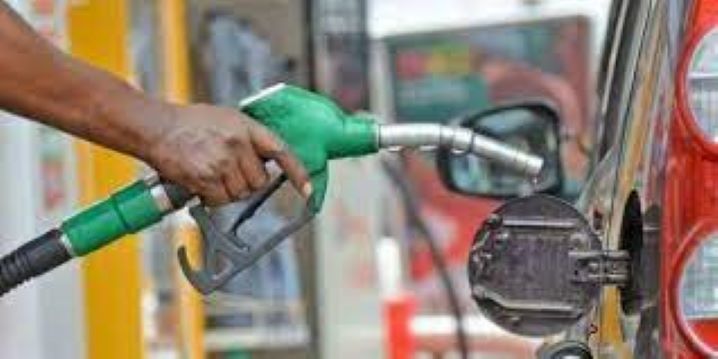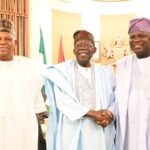*plan own cash transfers for workers, poor Nigerians
By Chesa Chesa
Expressing lack of confidence in the social welfare register used by outgone administration of Muhammadu Buhari, State Governors on Thursday announced plans to implement their own cash transfers to poor residents and civil servants in their States as part of measures to cushion the effect of recent petrol subsidy removal and rising food costs.
This is coming two days after President Bola Tinubu suspended the Federal Government’s plan to make similar cash transfers of N8,000 per poor household over the next six months.
The Governors who met in Aso Rock Villa, Abuja under the aegis of National Economic Council (NEC), chaired by Vice-President Kashim Shettima, also clarified that only about N900 billion will be shared among the three tiers of government at the Federation Account Allocation Committee (FAAC) this month, as against the N2 trillion being reported on social media.
Governors Chukwuma Soludo (Anambra); Dapo Abiodun (Ogun); Bala Mohammed (Bauchi) and Acting Governor of the Central Bank of Nigeria (CBN), Folashodun Shonubi, briefed State House correspondents on the outcome of the NEC meeting.
Soludo and Abiodun explained that State Governments were encouraged to implement the cash transfer programme based on social register generated by each State, as they were in a better position to so do, just as the Governors expressed lack of confidence in the social register used for similar cash transfer by the administration of Muhammadu Buhari.
The transfers will be tax-free and will be in the first instance of six .months, after which the effect of the subsidy removal on citizens will be reviewed Abiodun said.
Asked if the register compiled by the past administration of Buhari would be used, Governor Soludo replied: “At the Council today, there was almost near unanimity among members that there’s a big question mark about the integrity of the so called National Social Register. We have questions about how those names in the register were brought about and I’m sure one question I hear asked is where it is for the most vulnerable group, and so on and so forth.
“Distributing things through the social register by digital means, implying that these people already they have account numbers and they have phone numbers. Maybe they must be talking about some other people, not Nigerians. The poorest 25 percent of Nigerians are largely, if not totally, unbanked, and they don’t have access to your telephone. It is of the poorest of the poor of our society.
“We felt that sitting in Abuja and calling on somebody in Anambra to compile a list and send it to you; and then the person depends on who he brings, and the registers are generated and people go to those villages and ask where are those people and people show don’t show up.
“This is stress testing it. And we think that we need to go down back to the drawing board and if you are delivering any such national or federal programme from Abuja, it needs to be delivered via the constituent governments that are there using their own format and mechanisms to generate the register that is comprehensive.
“That meets certain criteria, that you can stress test and you can call out the people in the village and everyone will confirm that these are the vulnerable people, if you are targeting vulnerable people, as it were.
“So, the integrity test is what is missing with that register. Many have just described what is being counted as National Register as either bogus or phantom. So we need to face the problem, the fact that we don’t have a credible register, and get back to work on this.”
Governor Bala Mohammed added that the Federal Government would distribute 252,000 metric tons of grains to States at a subsidised rate to cushion the effect or subsidy removal, while the National Emergency Management Agency (NEMA) will also make available more grains to the people from its warehouses.
.
On his part, Governor Dapo Abiodun of Ogun State said that though the hardship the masses are facing as a result of the removal of fuel subsidy was not the doing of the government as the market forces determines the price, efforts were being made to cushion its effect.
He also said that the government was looking at the possibility of funding Micro Small and Medium Enterprises (MSMEs), which he said are the engine room of businesses in Nigerian economy.
He further said the government plans immediate implementation of energy transition plants, converting mass transit buses to Compressed Natural Gas (CNG) and that the long term vision was to establish electric automobile plants and recharge stations.
He said: “It was also proposed by the Council that we should implement a Cash Award Policy for all public servants. What’s a Cash Award Policy? That would be a policy that allows each sub-national to actually pay the public servants a certain prescribed amount of cash on a monthly basis and was prescribed that that should be implemented for six months in the first instance.
“You’ll wondering why six months. The idea is that as much as we’re also particular about ameliorating the pains of our people immediately, a lot of sustainable measures are being put in place and it’s our hope that within now and the next six months, those sustainable measures would have begun to be visible and then we can begin to taper down these cash awards. These cash awards, by the way, would be funds that will be placed in the hands of civil servants that will be tax-exempt.”
On his part, the acting Governor of Central Bank of Nigeria, CBN, Folashodun Shonubi said the Federal Inland Revenue Service, FIRS, briefed the council and announced that it was ahead of the half year target.
He said: “Chairman of the Federal Inland Revenue making a presentation on what they have done so far, the level of collections. It was nice to know that they are ahead of their target for half year. And we expect that before or by the time the year ends they would exceed.
“They also gave us some idea of what next year should be like from them. And from this year, we hope to make some N10 trillion. It is planning that next year, we should be able working with all the agencies provide N25 trillion as their contribution to the national coffers.”
*****




